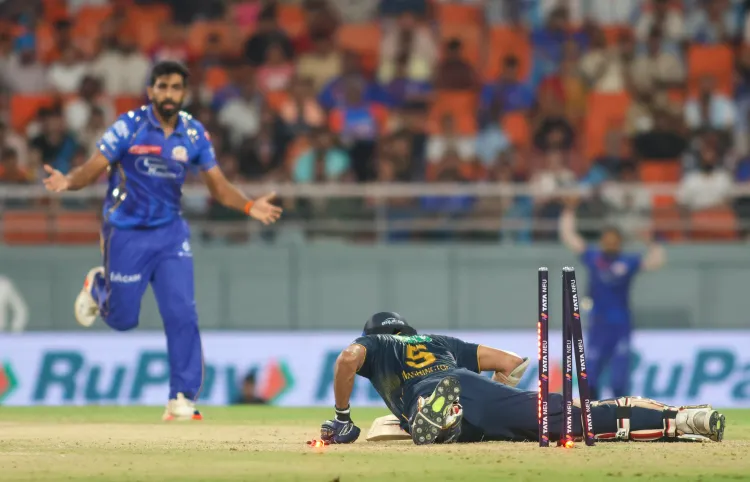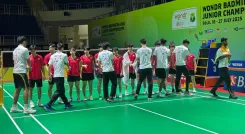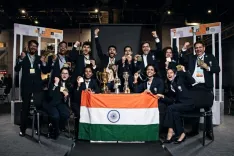Is the Game Ever Over Until Bumrah Bowls His Last Over?

Synopsis
Key Takeaways
- Bumrah’s economy rate of 6.75 was pivotal.
- The dismissal of Sudharsan was a turning point.
- MI's strategy paid off in a high-pressure situation.
- De Villiers shared key insights on game dynamics.
- The match showcased the unpredictability of cricket.
New Delhi, May 31 (NationPress) Following Jasprit Bumrah's impressive performance of 1-27, which significantly contributed to the Mumbai Indians (MI) securing a 20-run victory over the Gujarat Titans (GT) in the IPL 2025 Eliminator, former South African cricketer AB de Villiers remarked that a cricket match is never truly over until the fast-bowling ace has finished his overs. This is a sentiment he also shared with his son.
In MI's defense of 228/5 in New Chandigarh on Friday evening, Bumrah showcased an exceptional economy rate of just 6.75, with his precise leg-stump yorker dismissing Washington Sundar and ending the critical 84-run fourth-wicket partnership with B Sai Sudharsan, which proved to be pivotal in the match.
After that, MI managed to restrict GT to 208/6, setting up a clash against Punjab Kings in Qualifier 2, scheduled at the Narendra Modi Stadium on Sunday. The victor of Qualifier 2 will face the Royal Challengers Bengaluru in the championship match in Ahmedabad on June 3.
"Players known for rising to the occasion during knockout stages faced their fears and delivered outstanding performances. Few believed GT had a chance at the halfway mark, but MI maintained their composure—especially Jasprit Bumrah, who consistently shines in high-pressure situations,” said de Villiers on JioHotstar.
He also noted that Sudharsan, the tournament's leading run-scorer, falling to pacer Richard Gleeson in the 16th over was another critical moment in the game. “The dismissal of Sai Sudharsan was crucial. He had executed that shot flawlessly all season, but it failed at the most crucial time. GT experienced a series of unfortunate events—dropped catches, hit wickets, and chaotic moments—yet they made it a competitive match,” de Villiers concluded.








